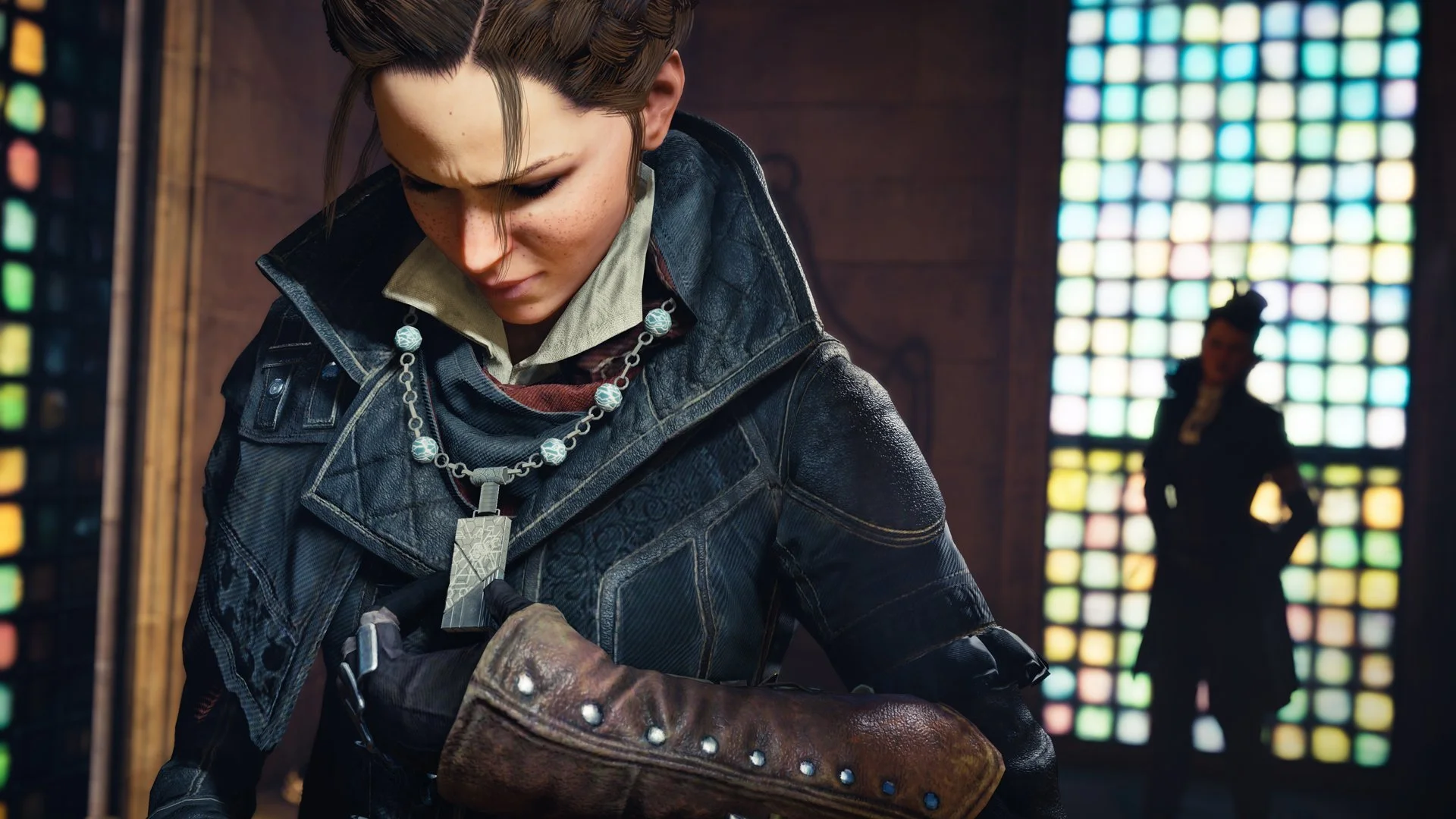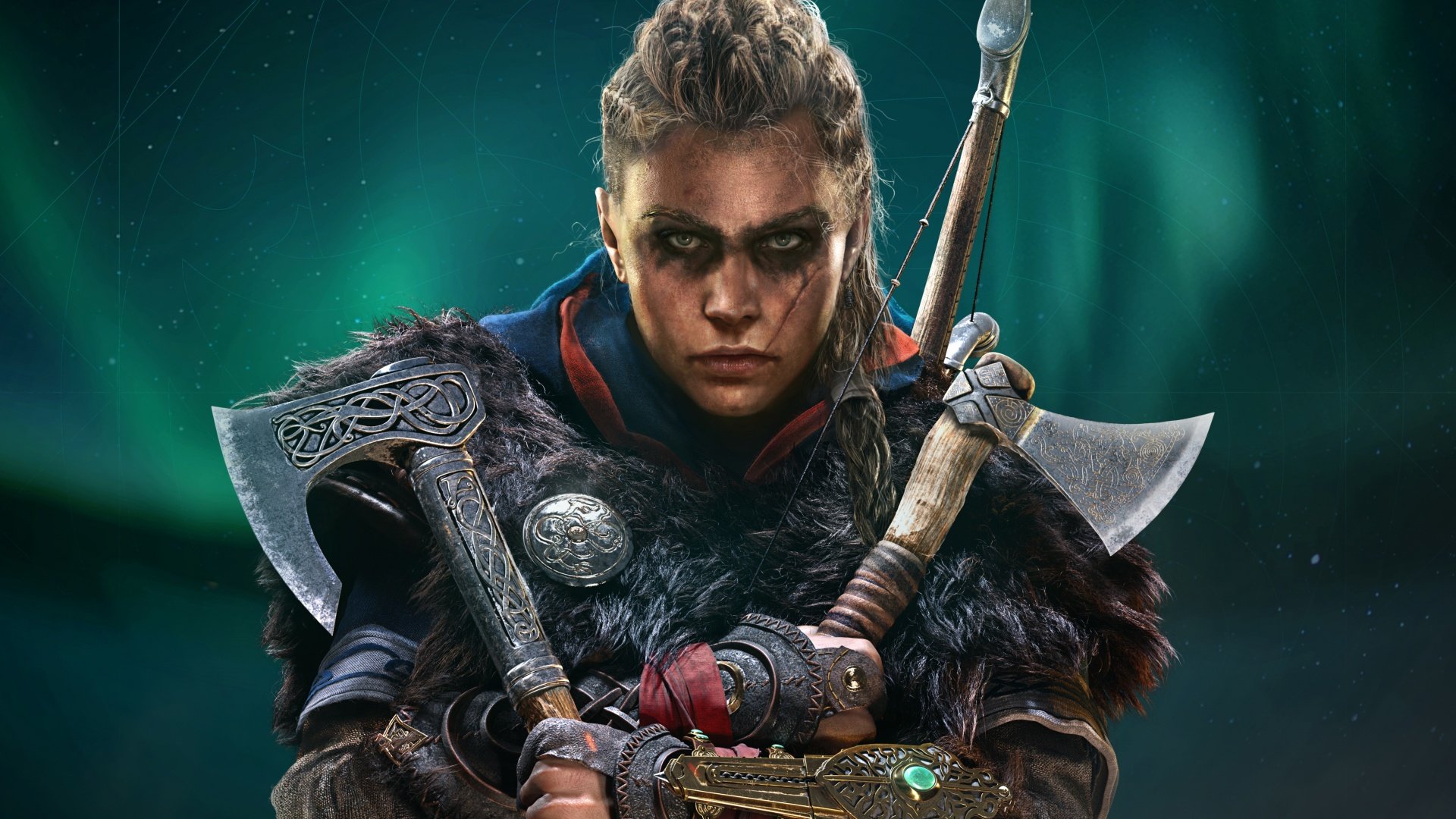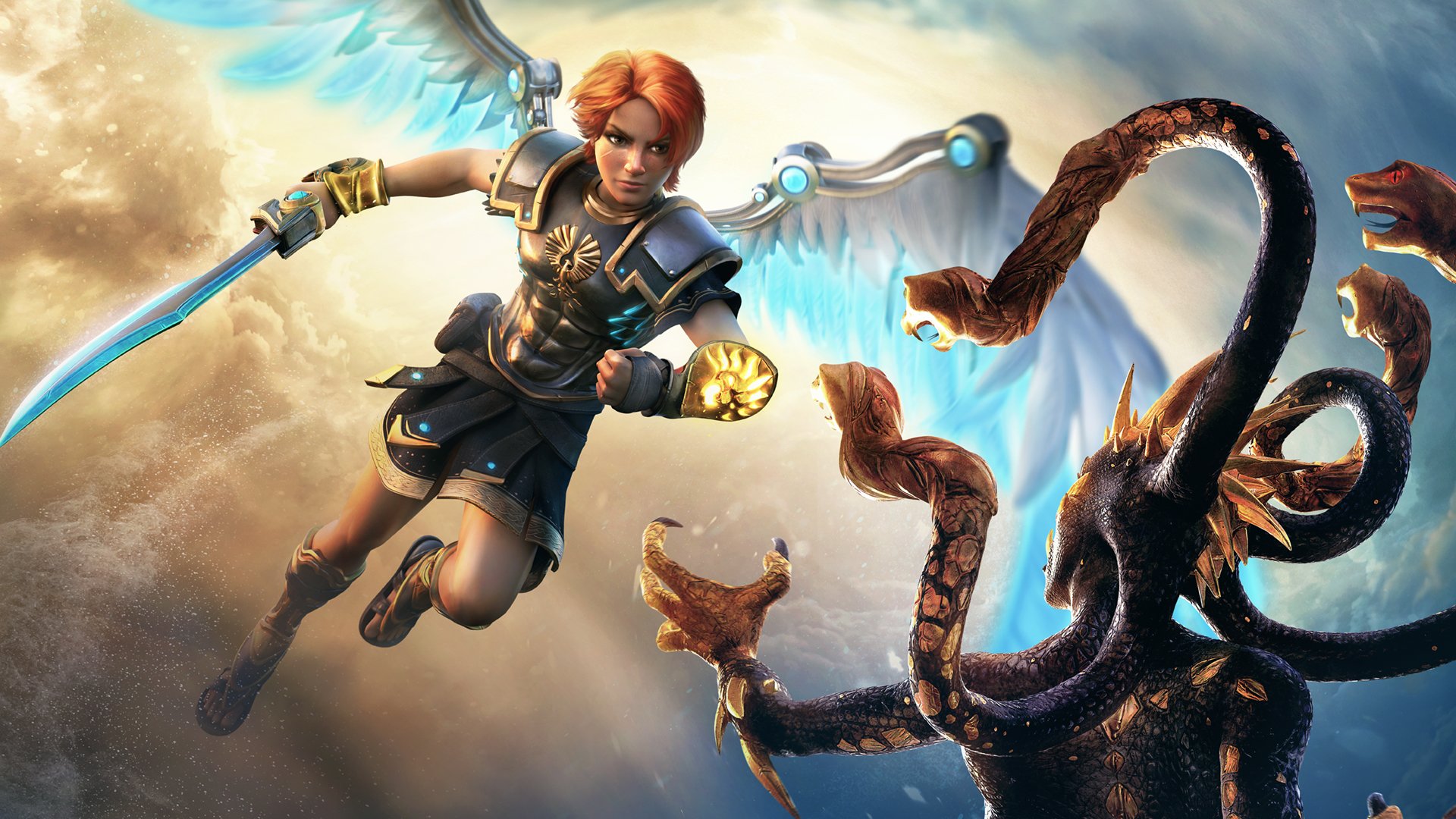Ubisoft’s Female Leads
Over the last seven years, Ubisoft has undergone a trek toward surfacing more female protagonists in their main line games. The journey has been, unfortunately, full of half measures and odd decisions. From a bird’s eye view, this pattern could be benign. The alternative is somewhat problematic, as it indicates a strategy focused on cow-towing to a minority of gamers that complain the second they feel “icky girls” are encroaching on their fun.
The last five major main characters in Ubisoft games have been delivered alongside questionable mechanics. Let’s explore them together.
Evie Frye - Assassin’s Creed Syndicate - 2015
After the troubled launch of Assassin’s Creed Unity, Ubisoft changed some parts of their formula with the follow-up. In addition to simplifying certain aspects of the graphics and combat for Assassin’s Creed Syndicate, they introduced dual protagonists — Jacob and Evie Frye.
Evie Frye represented the first playable female assassin in a console main line game (previously, Aveline de Grandpré headlined Assassin’s Creed III: Liberation on the PS Vita). After the release, opinions swirled around the original intent for the Victorian assassin. Some felt that she should have had more screen time. Others felt she could have shouldered the game by herself.
I was late to the party on this game. I couldn’t play the part of the early adopter after skipping Unity (with good reason). However, I eventually grabbed an on-sale copy and dove head first into London’s foggy, Industrial Revolution backdrop. I played the entirety of the main story and eventually tackled the DLC.
Throughout Syndicate, Evie Frye pushed the traditional Assassin narrative while Jacob handled more of the gang organizing. To me, the story moved well, and the twins had decent chemistry. Spinning narratives aside, few could complain about these main characters as problematic. The pattern doesn’t really materialize until later…
Aya - Assassin’s Creed Origins - 2017
I remember seeing the first trailer showing Assassin’s Creed Origins’ Egyptian landscape. I was excited when I first opened my Gold Edition steelbook with its promise of a journey for vengeance. It represented a departure from the series formula, introducing RPG elements that attracted new fans while repelling some older ones. Gone were the calculated, stealthy kills we were all used to, replaced by gameplay wrought with raw rage and uncontrolled aggression... until...
Aya.
Playable only in side naval missions (slightly reminiscent of Assassin's Creed IV: Black Flag), Aya stands as a stoic counter to Bayek's emotion. She is cold, calculated, and cunning. Her character pushes the narrative in the direction of the political intrigue that typically served as a background in previous installments. Aya represents the strategic side of the Assassins, making back room deals in a quest to improve her larger plan.
To this day, Bayek remains my favorite protagonist of the franchise. The Medjay from Siwa's journey spoke to me in a way that surpassed his predecessors. His motivation was deeper than both Arno Dorian and Ezio Auditore. His sense of duty ran arguably stronger than Altaïr himself. At his core, he is a family man. One with a very strong partner at his side.
Aya's handling in AC Origins is only excused by the quality of the protagonist's development. One could argue that her portrayal (or lack thereof) is problematic. One would be reaching.
Kassandra - Assassin’s Creed Odyssey - 2018
Here is where it gets interesting (Spoilers). Assassin’s Creed Odyssey took the series even further from its Desmond Miles roots. Large scale, near Dynasty Warriors scale battles in open fields take the place of rooftops. The broken Spear of Leonidas stands in place of the iconic Hidden Blade. Dialog options. Romance options. Many...many...MANY... side quests. Multiple endings. And a protagonist choice that lets you pick the hero and the (temporary) villain.
The first time I learned Kassandra was the canon protagonist, I let out an audible "hmmm." Alexios, her brother, was the other choice, but he was written as the foil to her adventures. Kassandra is, in my opinion, the better option, canon or not. Playing through the game, she seemed to fit perfectly into the plot, while Alexios' somber tone made a much better Deimos. The explanation as to why you get to pick between these siblings makes some bit of sense. The same sense that uses the Isu lore to explain why, after a while, the main character of this game is basically untouchable.
On its own, the choice to make the first potential solo female lead in this series interchangeable with her male counterpart is problematic. Paired with the previous games, a pattern starts to emerge. Some research will tell us that the execs at Ubisoft are driving this trend. The next couple of games can reveal more…
Eivor - Assassin’s Creed Valhalla - 2020
Eivor is a female viking and budding Assassin. Her first name is a traditionally female one. Her last name is listed as Varinsdottir, which loosely means “daughter of Varin.” For reference, Thor is commonly given the last name Odinson. However, you are able to select Eivor’s gender at the start of this Norse adventure.
Spoilers ahead.
The reasoning given is that the male version of Eivor is an incarnation of Odin, whose DNA resides in Eivor. It throws the animus off, and shows her as a male, should the player select it. This reasoning makes sense, even though in context it appears to be a shoehorned reason to select a gender other than female.
In contrast to the previous game, you can switch genders on the fly in this game, even mid-cutscene. This design choice appears innocent on its own. To me, when I analyze it in the context of the previous female leads and their treatment, it seems that Ubisoft has given players a “try before you buy” mechanic vis-a-vis the woman protagonist. Either that, or y-chromosomes have some attribute that blocks DNA from interfering with the animus.
Fenyx - Immortals Fenyx Rising - 2020
This one is the absolutely most egregious of the bunch. Immortals Fenyx Rising is a game that marries the mechanics of Assassin’s Creed Odyssey and The Legend of Zelda: Breath of the Wild almost seamlessly. The gameplay is fun and varied, the puzzles are creative, and the story and dialog is entertaining.
In every piece of marketing for this game, Fenyx is depicted as a female with short red hair. In practice, you can customize Fenyx to your liking - hair color, facial features, and gender. Again, in a vacuum, this is fine. It’s a little strange, given that there is a default look for the character, and it is another female that can be switched to male.
Where this pattern goes completely off the rails is in the second DLC episode, Myths of the Eastern Realm. Focusing on Chinese mythology, this episode introduces Ku, a new hero that goes on a quest similar to that undertaken by Fenyx. However, the big difference with Ku is that he starts male, presents as male, and remains male for the entirety of the playthrough. Why is this? Surely the same argument can be made for customization when it comes to a DLC side character as it can for the main character of the base game, right?
Future projects
Recently, Ubisoft announced Assassin’s Creed Mirage, a project focusing on Valhalla’s Basim and what appears to be his adventures before coming into contact with Eivor. Beyond that, the announced, but not yet revealed project Assassin’s Creed Infinity has been touted as more of a platform than a single game. Live service has never been my thing, but it has had its success stories.
Given Ubisoft’s history with female protagonists, do you think their approach in the future needs to change? Has their handling of their mainline femme fatales been problematic? In my opinion, they have some work to do. But that’s just me. Let me know what you think in the comments.







